Russia will propose UN resolution to probe alleged Syria gas attack: Lavorv
Russian Foreign Minister Sergei Lavrov says Moscow will propose a resolution to the UN to launch an investigation into the reports of a suspected chemical attack on the Syrian town of Douma.
Lavrov said Russia will propose a "transparent and honest" investigation at the Security Council on Tuesday with the involvement of the Organization for the Prohibition of Chemical Weapons (OPCW).
He criticized OPCW’s previous investigations which were conducted from long distance on alleged chemical attacks in Syria and stressed that Syrian forces, backed by Russia, will ensure the safety of OPCW experts if they travel to the scene.
"If, under the pretext of a lack of security guarantees, those who employ anti-Russian arguments to pursue their Russophobic aims do not allow experts to come, then it will be a verdict on their true plans and show that they have no interest in establishing the truth," Lavrov said.
The remarks came a day after Moscow rejected a draft resolution proposed by the US to the Security Council on the alleged attack.
In the course of the liberation operation in Eastern Ghouta, which began in February, Moscow has repeatedly warned that the militants in the region could stage gas attacks in a bid to frame the Syrian government.
The suspected chemical weapons attack hit the town of Douma in Eastern Ghouta region in the suburban area near Damascus late on Saturday, reportedly killing at least 60 people and wounding more than 1,000 others.
On Tuesday, UN Secretary General Antonio Guterres expressed outraged over the report on the suspected chemical attack and called for unlimited access for international investigators.
"Any confirmed use of chemical weapons, by any party to the conflict and under any circumstances, is abhorrent and a clear violation of international law," Guterres said in a statement.
"The seriousness of the recent allegations requires a thorough investigation using impartial, independent and professional expertise," he added.

The Syrian Foreign Ministry issued a statement on Tuesday, calling on the OPCW to send a fact-finding mission to probe the alleged incident in Douma.
The statement expressed Syria’s preparedness to devote all its efforts to cooperate with OPCW experts based on transparency and reliable evidence.
Western countries have blamed the incident on the Syrian government. Damascus rejected the accusations as “chemical fabrications,” which were made by the terrorists themselves in a bid to halt pro-government forces’ advances.
Damascus said that the so-called Jaish al-Islam Takfiri terrorist group, which has dominant presence in Douma, was repeating the accusations “in order to accuse the Syrian Arab army, in a blatant attempt to hinder the Army’s advance.”
The UN Security Council convened an emergency session over the alleged chemical attack on Monday. During the UNSC meeting, US Ambassador to the United Nations Nikki Haley said that Washington "will respond" to incident regardless of whether the United Nations Security Council takes action or not.
Russian UN Ambassador Vassily Nebenzia, for his part, rejected the reports on a suspected chemical attack and warned the US against "grave repercussions" if it attacks Syria over such claims.
Syria, backed by the Russian air force, has already liberated almost all Eastern Ghouta and has reached an evacuation deal with the terrorists to leave Douma, their last stronghold in Eastern Ghouta region.
US President Trump warned that Russia, Iran and Syria will have a “big price to pay” following the suspected chemical attack, saying his administration will soon be making “some major decisions” on Syria.
Citing unnamed US officials, Reuters reported Monday that Trump is weighing a multinational military response to the purported poison gas attack.
Syria surrendered its stockpiles of chemical weapons in 2014 to a joint mission led by the US and the Organization for the Prohibition of Chemical Weapons (OPCW), which oversaw the destruction of the weaponry.
It has also consistently denied using chemical weapons over the course of the foreign-backed militancy, which gripped the country in 2011.
Western governments and their allies, however, have never stopped pointing the finger at Damascus whenever an apparent chemical attack takes place.
In April 2017, a suspected sarin gas attack hit the town of Khan Shaykhun in the northwestern Syrian province of Idlib, taking at least 80 lives. Accusing Damascus, the US then launched several dozen Tomahawk cruise missiles at a Syrian air base, taking the lives of about 20 people including both Syrian soldiers and civilians.
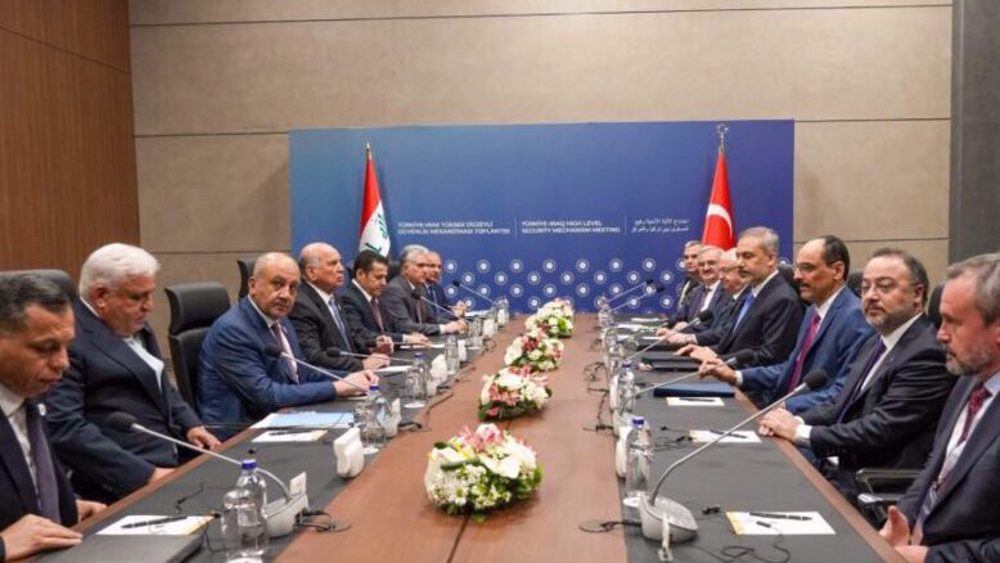
Iraq warns Daesh threats ‘resurging’ in Syria
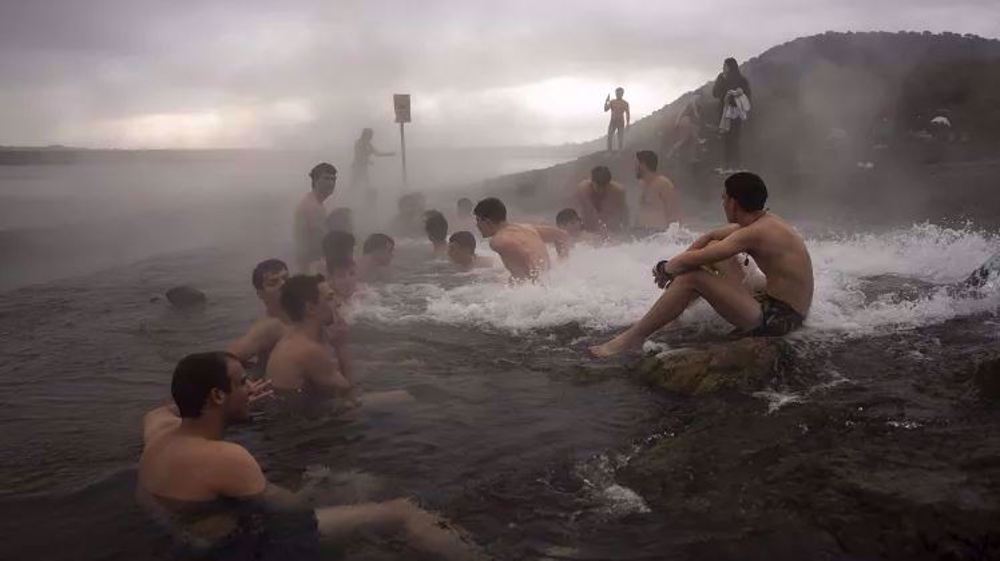
Israel organizes controversial hiking tours for settlers in occupied Syrian territory: Report
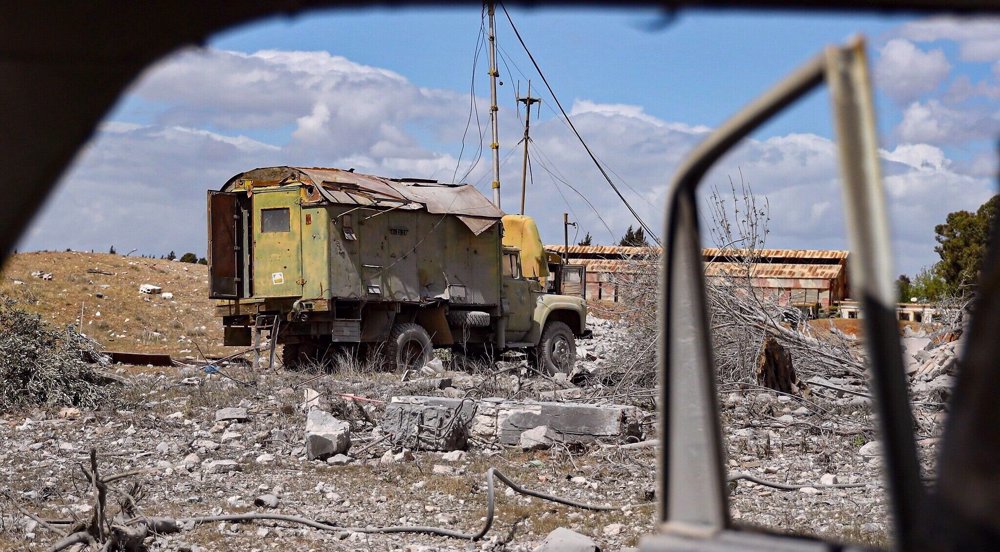
Israel claims it destroyed former military site in southern Syria
Top official: Hamas agrees to free all Israeli captives for ‘serious prisoner swap’
Sheikh Farid-ud-din Attar: Persian mystic and progenitor of fable in Iranian Sufism
VIDEO | Washington DC marks slave Emancipation Day as racial gaps endure
Israel strikes kill at least 38 Palestinians in 24 hours
Iran signs contract to convert Iraq’s flare gas into petchem feedstock
Dark Abyss: How Israeli settler society became a sanctuary for rapists, pedophiles
Pentagon allowing extremism in US military to go unchecked: Report
VIDEO | Divisions in Israel over Gaza war








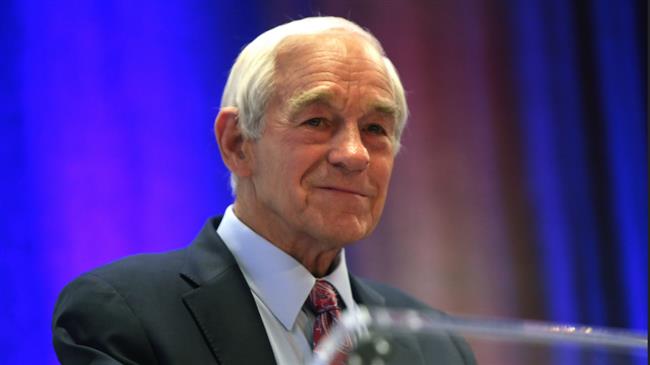
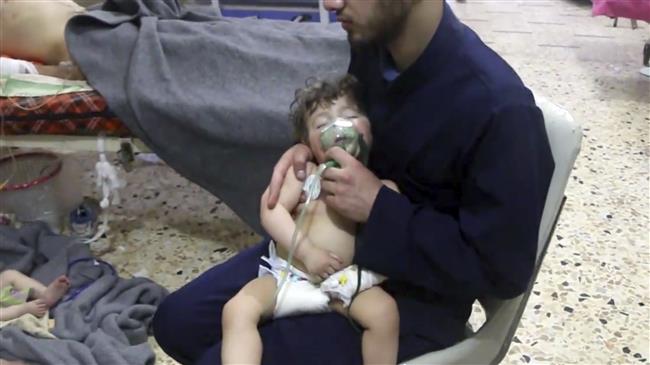

 This makes it easy to access the Press TV website
This makes it easy to access the Press TV website